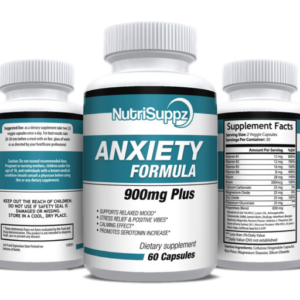29 Jun Habits To Improve Anxiety
Habits To Improve Anxiety
1. Introduction
Anxiety is a common mental health condition that can have a significant impact on a person’s quality of life. From a racing heart to feelings of dread and worry, anxiety can manifest in many different ways. However, there are effective strategies that can help manage and alleviate symptoms of anxiety.
In this comprehensive guide, we will explore five proven strategies to help individuals effectively cope with anxiety. From mindfulness techniques to cognitive-behavioral therapy, these evidence-based approaches can provide much-needed relief for those struggling with anxiety.
If you or someone you know is dealing with anxiety, read on to discover how to effectively manage and overcome this challenging condition.
2. The impact of anxiety on your professional life
Understanding the impact of anxiety on your professional life is crucial for maintaining overall well-being. Anxiety can lead to decreased productivity, difficulty concentrating, and strained relationships with colleagues. It may also hinder career progression and contribute to burnout. By recognizing these effects, individuals can take proactive steps to address and manage anxiety in the workplace effectively. Stay tuned as we delve into practical tips and strategies to help you navigate the challenges of balancing work responsibilities with your mental health needs. Your professional success and mental wellness are equally important, and finding a harmonious balance is key.
3. Identifying triggers and coping mechanisms
To effectively manage anxiety, it is essential to pinpoint the specific triggers that contribute to your feelings of unease or distress in professional settings. Keep a journal to record situations or events that tend to provoke anxiety, and reflect on patterns that emerge. Once you have identified these triggers, work on developing coping mechanisms that help you navigate these challenging moments more effectively. This may include deep breathing exercises, practicing mindfulness techniques, or seeking support from a trusted colleague or mental health professional. By understanding your triggers and having coping strategies in place, you can empower yourself to proactively manage anxiety and foster a more positive work environment.
4. Implementing relaxation techniques and self-care practices
In addition to identifying triggers and developing coping mechanisms, incorporating relaxation techniques and self-care practices can further enhance your ability to manage anxiety in professional settings. Dedicate time each day for activities that promote relaxation and reduce stress levels, such as meditation, yoga, or engaging in hobbies that bring you joy. Prioritizing self-care through adequate rest, healthy eating, and regular exercise can also have a significant impact on your overall well-being and resilience to anxiety. By making self-care a priority, you create a strong foundation for effectively managing anxiety and maintaining a healthy work-life balance.
5. Seeking professional help and support
Recognizing the importance of seeking professional help when managing anxiety is crucial. Consulting with a mental health professional, such as a therapist or counselor, can provide you with the tools and strategies tailored to your specific needs. Professional guidance can offer insight into your anxiety triggers, equip you with coping mechanisms, and help you develop a personalized plan for managing anxiety in professional settings. Additionally, seeking support from friends, family, or support groups can offer a valuable network of understanding and encouragement. Remember, you don’t have to navigate the challenges of anxiety alone; seeking professional help and support is a proactive step towards achieving mental wellness.
6. Creating a structured routine and setting goals
Establishing a daily routine can provide a sense of stability and control, which is crucial in managing anxiety. Setting realistic goals for yourself can help you stay focused and motivated. By breaking tasks into smaller, manageable steps, you can reduce feelings of overwhelm and improve your productivity. Incorporating self-care activities, exercise, and time for relaxation into your routine can also benefit your mental well-being. Remember, consistency is key in managing anxiety effectively. Stay committed to your routine and goals, and don’t hesitate to seek professional guidance if you encounter challenges along the way.
7. Conclusion: Taking control of your anxiety for a successful professional life
In today’s fast-paced world, managing anxiety is more important than ever to thrive in your professional life. By implementing the strategies discussed in this guide, you can take proactive steps towards regaining control over your mental well-being. Remember, it’s okay to seek support when needed and to prioritize self-care to maintain a healthy work-life balance. Consistency in following your routine and goals will be key to managing anxiety effectively in the long run. Make a commitment to yourself to prioritize your mental health, and watch as it positively impacts your professional success. Stay informed, stay proactive, and remember that you have the power to overcome anxiety and excel in your career.
Habits To Improve Anxiety


No Comments